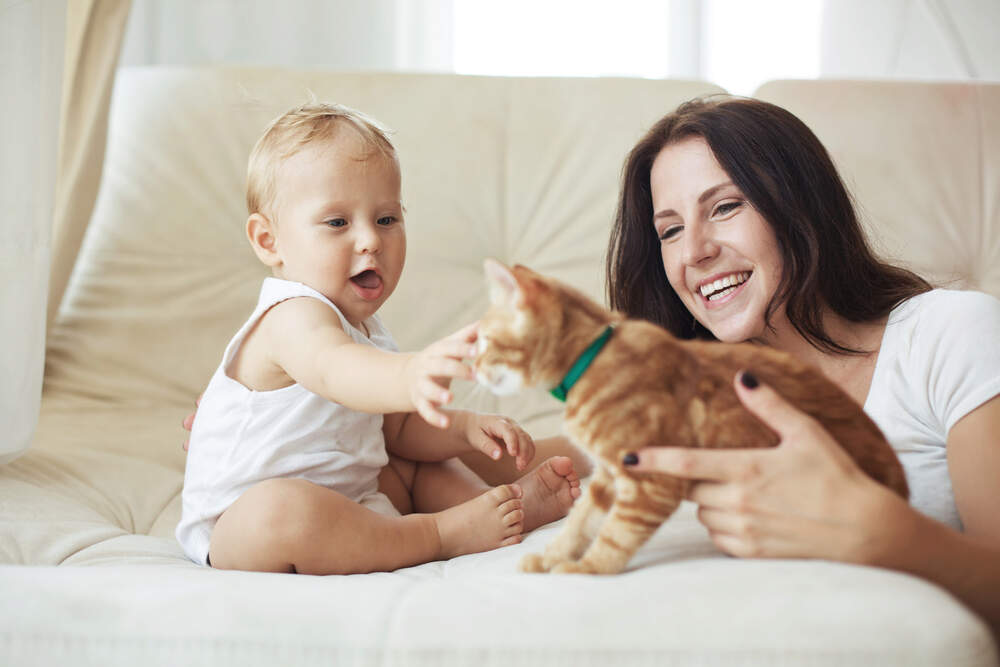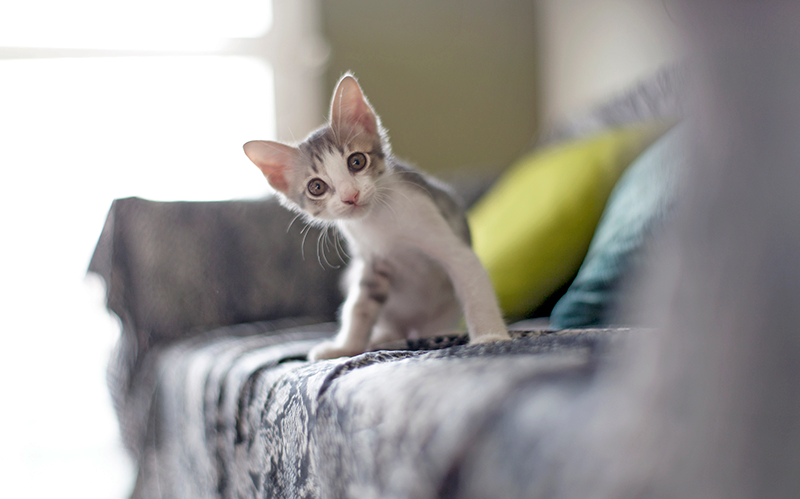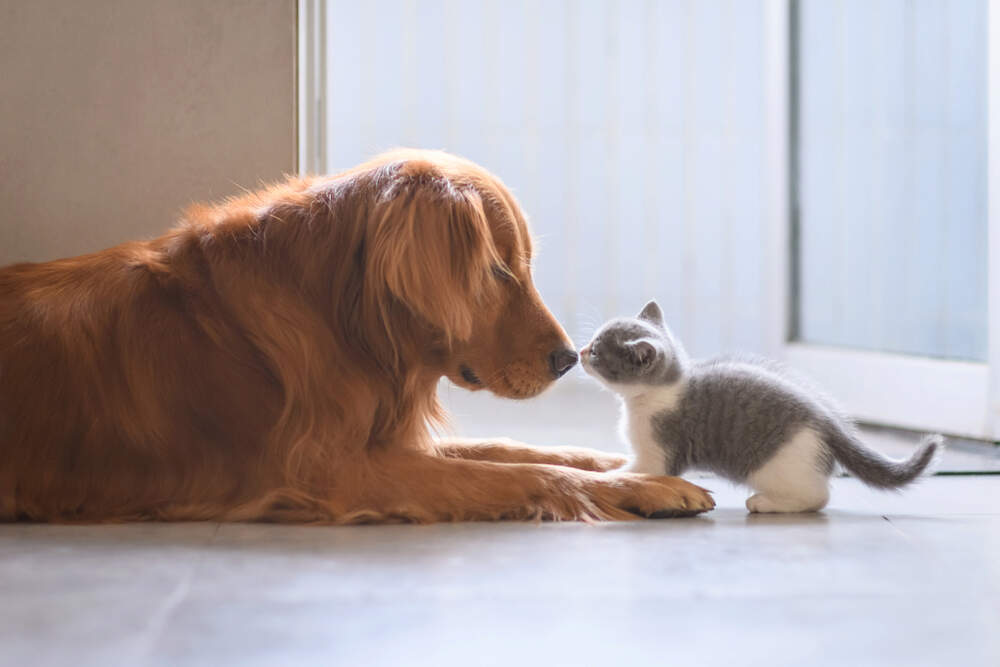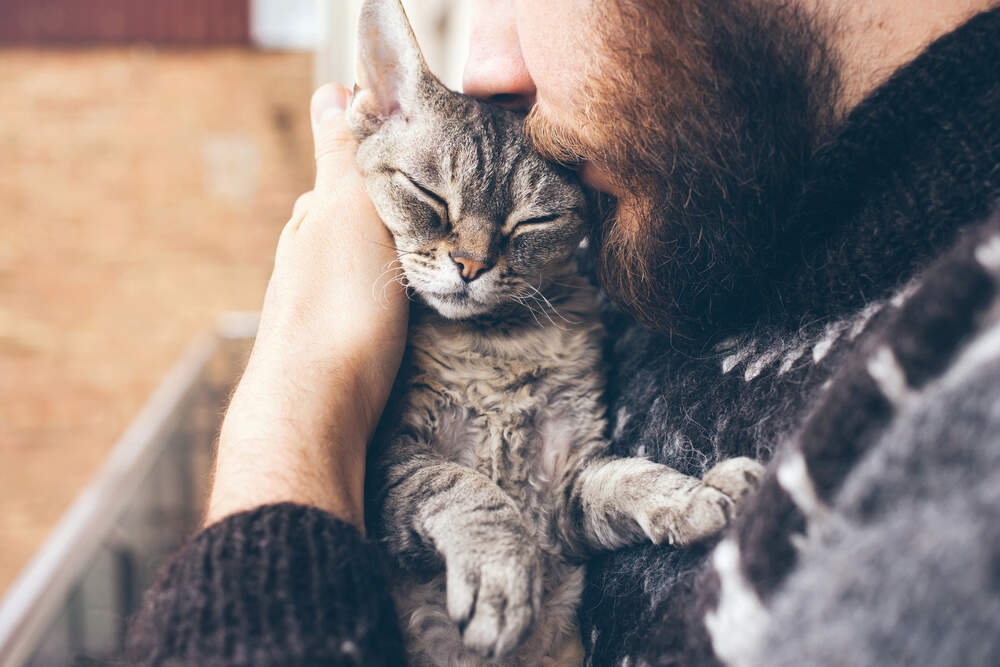Introducing a Cat to a Baby
Are you having a baby and worried about how your cat might behave when you bring your baby home? Cats, by nature, are territorial. They aren't too comfortable with sudden change, and a new baby might trigger some unpleasant behaviors. The good news is that if you prepare your kitty in advance, you can minimize your cat's stress and help the transition go much more smoothly.
How to Prepare Your Cat Before the Baby's Born
Cats and babies can co-exist peacefully, especially if you do a little prep work before your baby's arrival. Cats are creatures of habit. They like consistency, and any change in routine will upset them at first. Before your baby arrives, take a few steps to help your cat better handle the transition.1
1. Put Things at Your Cat's Eye Level
Place some of the baby's toys and supplies (diapers, wipes, bottles, etc.) on the floor near your cat's food bowl. That way, she'll get to see these new things on her level.
2. Bring New Scents and Sounds into the Home Early
Use baby lotion or creams on your hands so your cat can become used to the smell. If you can get a blanket from the hospital where your baby will be born, bring that home early so your cat can become familiar with its smell as well.
You might even try playing baby sounds and noises during different times of the day to help your cat get used to that significant change, too.
3. Change the Routine Early
Decide before your baby is born whether or not you'll allow your cat into the baby's room or what surfaces (changing table, crib mattress, rocking chair, etc.) will be off-limits. Begin enforcing those changes weeks ahead of time.
If you're the cat's primary caregiver and you know you can't focus on her as much once the baby arrives, start transitioning some of that care to another family member a few months before the baby is born. This way, your cat will already be used to relying on someone else in the home and won't feel threatened by the baby's needs.
4. Use a Calming Diffuser
A week or so before the baby's arrival, plug a Comfort Zone Calming Diffuser in your home's main living space. The diffuser lasts for four weeks and helps your cat adjust to a changing environment. These diffusers mimic a cat's natural pheromones that tell her everything is okay.
Instead of a calming diffuser, consider using a Comfort Zone Calming Collar. This has the same calming effect as the diffuser, but the collar helps keep your cat calm wherever she goes.
What to Do When the Baby Comes Home
Right after the baby is born, bring home a blanket or onesie with your son or daughter's scent from the hospital so your kitty can get used to the baby's smell, if you haven't been able to do that already. Even though a new baby will drastically alter your schedule at home, try to keep consistent feeding, playing, and litter box maintenance times. You don't want your kitty feeling isolated or lonely. A consistent schedule can help him feel much more confident and secure—and thus less stressed by your new baby.
You also want to make sure that you keep the cat out of the baby's room and only allow your kitty and baby to be together when you can supervise. Unsupervised time together can bring some risks that you want to avoid. Cats love to snuggle up for warmth, and you don't want your kitty cuddling so close to your sleeping baby that he interferes with the baby's breathing.2 You also don't want your baby getting overly excited and squeezing your cat or startling him, possibly scaring your kitty into scratching your child.
Make sure your cat has his own special area in the house—whether it's where his food and water bowls are, his litter box area, or a warm, soft spot to hide like a covered bed. He can go there when he is overwhelmed with all the changes in the home. Make sure you let him have that space all to himself.
Introducing your cat to a new baby requires lots of patience and planning. If you prepare your cat for the new smells and sounds ahead of time, your kitty will adjust much more easily. As your child grows over the years, your cat and your child may end up being close friends.
1. ASPCA. "Cats and Babies." ASPCA.org, https://www.aspca.org/pet-care/cat-care/cats-and-babies.
2. HSE. "Cats - Health and Safety Risks to Babies and Children." HSE.ie, 27 June 2019, https://www2.hse.ie/wellbeing/child-health/pets-and-child-safety/cats-health-and-safety-risks-to-babies-and-children.html.




